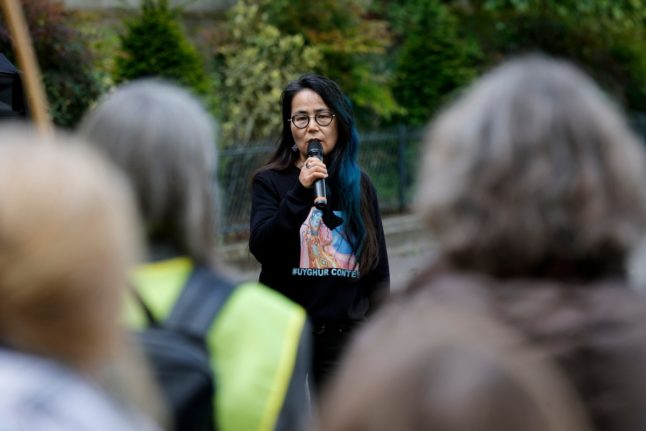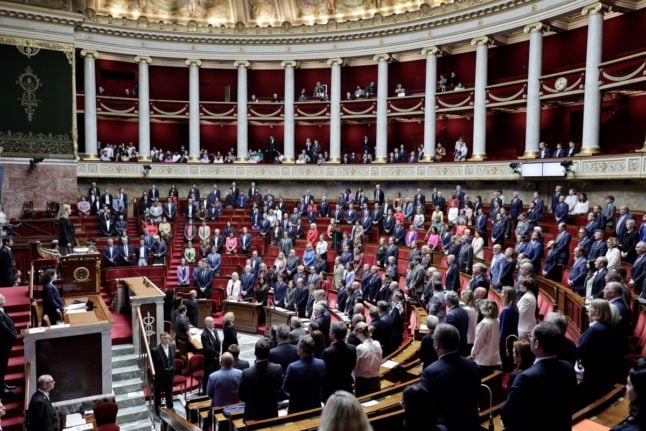Xi is due to make a state visit to France on Monday and Tuesday.
Dilnur Reyhan, the founder of the European Uyghur Institute and a French national, said she and others were “angry” the Chinese leader was visiting.
“For the Uyghur people — and in particular for French Uyghurs — it’s a slap from our president, Emmanuel Macron,” she said, describing the Chinese leader as “the executioner of the Uyghur people”.
Beijing stands accused of incarcerating more than one million Uyghurs and other Muslim minorities in a network of detention facilities across the Xinjiang region.
Campaigners and Uyghurs overseas have said an array of abuses take place inside the facilities, including torture, forced labour, forced sterilisation and political indoctrination.
A UN report last year detailed “credible” evidence of torture, forced medical treatment and sexual or gender-based violence — as well as forced labour — in the region.
But it stopped short of labelling Beijing’s actions a “genocide”, as the United States and some other Western lawmakers have done.
Beijing consistently denies abuses and claims the allegations are part of a deliberate smear campaign to contain its development.
It says it is running vocational training centres in Xinjiang which have helped to combat extremism and enhance development.
Standing beside Reyhan at a press conference in Paris, Gulbahar Haitiwaji, who presented herself as having spent three years in a detention camp, said she was “disappointed”.
“I am asking the president to bring up the issue of the camps with China and to firmly demand they be shut down,” she said.
Human Rights Watch on Friday urged Macron during the visit to “lay out consequences for the Chinese government’s crimes against humanity and deepening repression”.
“Respect for human rights has severely deteriorated under Xi Jinping’s rule,” it said.
“His government has committed crimes against humanity… against Uyghurs and other Turkic Muslims in Xinjiang, adopted draconian legislation that has erased Hong Kong’s freedoms, and intensified repression of government critics across the country.”
“President Macron should make it clear to Xi Jinping that Beijing’s crimes against humanity come with consequences for China’s relations with France,” said Maya Wang, acting China director at Human Rights Watch



 Please whitelist us to continue reading.
Please whitelist us to continue reading.
Member comments